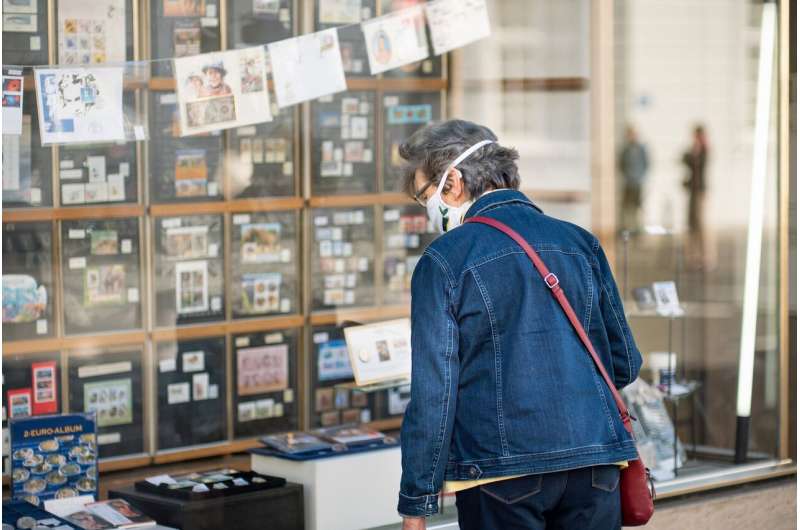Most British COVID-19 mourners suffer PTSD symptoms

More than eight out of 10 British people who are seeking support for having lost a loved one to COVID-19 reported alarming post traumatic stress disorder symptoms, new Curtin University-led research has found.
The study, based on data from people seeking help and guidance from the United Kingdom's National Bereavement Partnership in collaboration with researchers from the Portland Institute for Loss and Transition and Christopher Newport University in the United States of America, also found almost two-thirds of British COVID-19 mourners experienced moderate or severe symptoms of anxiety and depression.
Lead author Professor Lauren Breen, from the Curtin School of Population Health, said the results were alarming given more than six million people had died from COVID-19 across the globe.
"These survey results indicate a concerning 'shadow pandemic' in the wake of a COVID-19 death with the vast majority of British mourners reporting alarming rates of psychological distress including constantly feeling on guard or easily startled," Professor Breen said.
"The mourners who were seeking support from the National Bereavement Partnership also reported concerning symptoms of anxiety and depression, dysfunctional grief including wanting to die in order to be with their loved one, and functional impairment that was affecting their home and family responsibilities."
According to the UK's dedicated PTSD charity, PTSD UK, about 20 percent of all PTSD cases worldwide are linked to the unexpected death of a loved one.
To date, there have been more than 175,000 COVID-19-related deaths in the United Kingdom.
Professor Breen said the findings had significant implications for counsellors in the UK, particularly in light of modelling that showed an average of nine family members were affected by each COVID-19 death.
"Counsellors in the UK should be alert to a broad band of pandemic-related psychological distress in people who have lost a loved one to COVID-19, and not concentrate solely on symptoms of grief," Professor Breen said.
"In particular, these findings underscore the need to screen for high levels of trauma as well as grief, for potential referral to counsellors with specialised skills in treating the intersection of trauma and bereavement."
Co-author Dr. Robert Neimeyer, a leading bereavement researcher and the Director of the Portland Institute for Loss and Transition, said the study suggested a useful focus for support and therapy for COVID-19 loss survivors.
"We found that much of the struggle that mourners reported in terms of intense PTSD symptoms, anguishing grief, and perturbing depression and anxiety was explained by the difficulty they had in making sense of a senseless loss, and preserving their orientation in a bewildering, threatening and disempowering world," Dr. Neimeyer said.
"Not only did they lose their loved ones, but they also lost a sense of predictability, justice and control over the circumstances of the loss—all of which could be crucial themes to address in bereavement support and therapy."
The study was based on surveys completed by 183 people seeking support from the National Bereavement Partnership in the United Kingdom.
Of those surveyed, 83 percent reported clinically elevated PTSD symptoms, 64 percent experienced psychiatric distress, 57 percent suffered functional impairment and 39 percent reported clinically significant symptoms of dysfunctional grief.
More information: Lauren J. Breen et al, Grief and functional impairment following COVID-19 loss in a treatment-seeking sample: the mediating role of meaning, British Journal of Guidance & Counselling (2022). DOI: 10.1080/03069885.2022.2075540





















